Honey is an incredibly versatile sweetener that can be used in a variety of dishes.
From baking to cooking, honey adds sweetness and depth to any dish.
Unfortunately, not everyone has access to honey or simply want to avoid it for health reasons.
Luckily, there are plenty of substitutes for honey that can give you the same flavor and texture without all the added sugar.
In this article, I’ll share 25 of the best substitutes for honey so you can enjoy your favorite recipes without worrying about what’s going into them.
What is Honey?
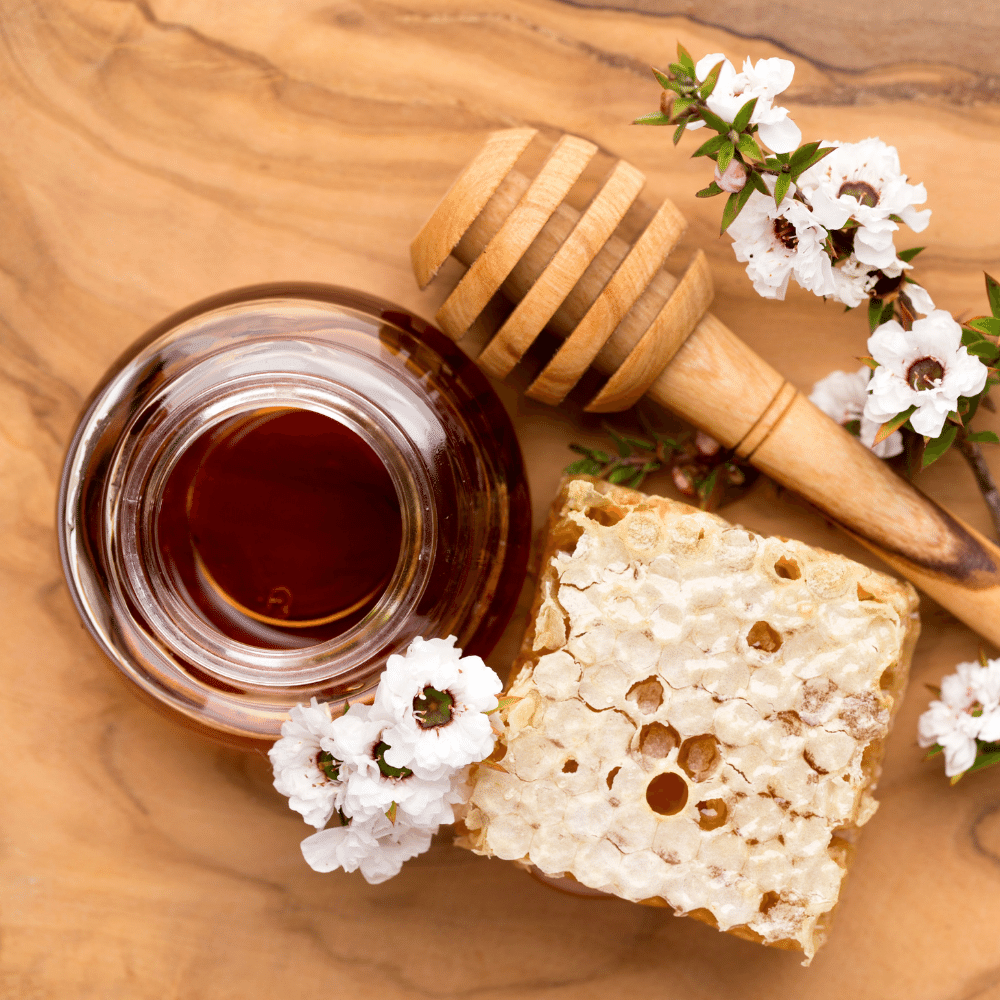
Honey is a sweet, viscous liquid that is produced by bees and other insects.
It is made up of primarily sugars like glucose and fructose, along with small amounts of vitamins, minerals, proteins, enzymes, and amino acids.
It has a unique flavor that varies depending on the nectar source used by the producing bee species.
Generally speaking, it has a floral sweetness or can have notes of nutty or spicy flavors depending on where it was sourced from.
The color of honey also varies widely across its range; from light yellow to dark amber colors; this depends largely on what types of flowers the bees visited when collecting their nectar for honey production.
In terms of texture, it will usually be thick but smooth in consistency with some crystallization taking place over time due to natural sugar breakdowns within the product itself.
Honey also has a high viscosity which makes it easier to use as an ingredient in other recipes such as dressings or marinades without having to add too much additional moisture.
The 25 Best Substitutes For Honey
If you’re looking for a replacement for honey, there are lots of options out there.
From maple syrup to agave nectar, here are 25 of the best substitutes:
1 – Maple Syrup

Maple syrup is a natural sweetener made from the sap of maple trees.
It has a unique flavor that’s slightly smoky and earthy, with notes of caramel and vanilla.
The syrup comes in various grades, ranging from light to dark amber.
The lighter syrups have a milder flavor while the darker ones are more robust and intense.
Maple syrup can be used as an alternative to honey for baking or cooking dishes like pancakes, waffles, French toast, oatmeal, and baked apples.
It also makes an excellent glaze for meats such as pork chops or salmon fillets.
Maple syrup is naturally fat-free and contains fewer calories per tablespoon than honey does.
2 – Agave Nectar
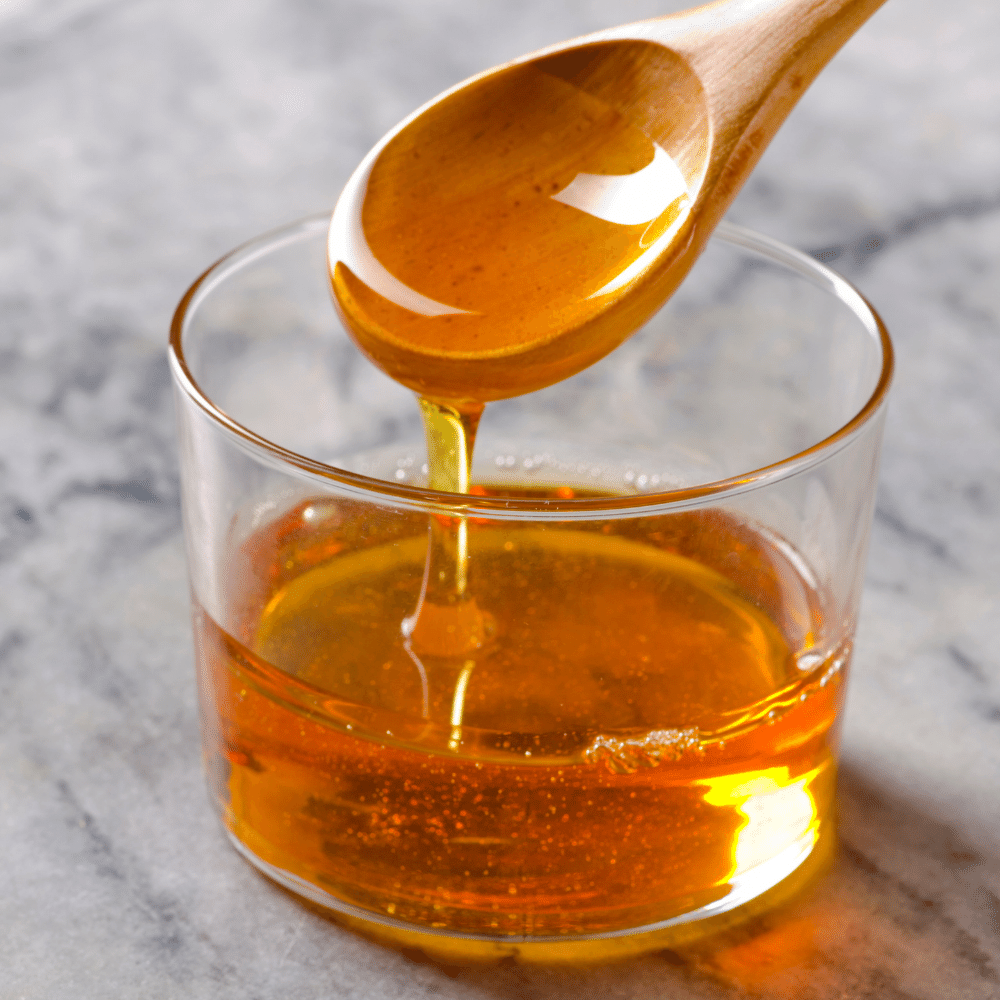
Agave nectar is a natural sweetener made from the sap of the agave plant.
It has a mild, slightly floral flavor and is much sweeter than honey.
Because it’s low on the glycemic index, it won’t cause blood sugar spikes like other sugars.
Agave nectar can be used in place of honey to sweeten beverages, dressings, sauces, desserts, and more.
It also works well as an ingredient in baking recipes that call for liquid sweeteners because its high fructose content helps retain moisture and prevents baked goods from becoming dry or crumbly.
3 – Molasses

Molasses is a thick, dark syrup made from the by-product of sugar cane or sugar beet processing.
It has a deep, earthy flavor with notes of caramel and toffee.
Molasses can be used in baking as a sweetener or added to savory dishes such as baked beans and barbecue sauces for an extra depth of flavor.
When substituting molasses for honey, it’s important to remember that it is much sweeter than honey so you may need to adjust the amount accordingly.
It also has a more intense flavor so you may want to add additional spices like cinnamon or nutmeg when using it in baking recipes.
Overall, molasses is an excellent alternative for those looking for something different from the standard honey sweetness!
4 – Coconut Sugar
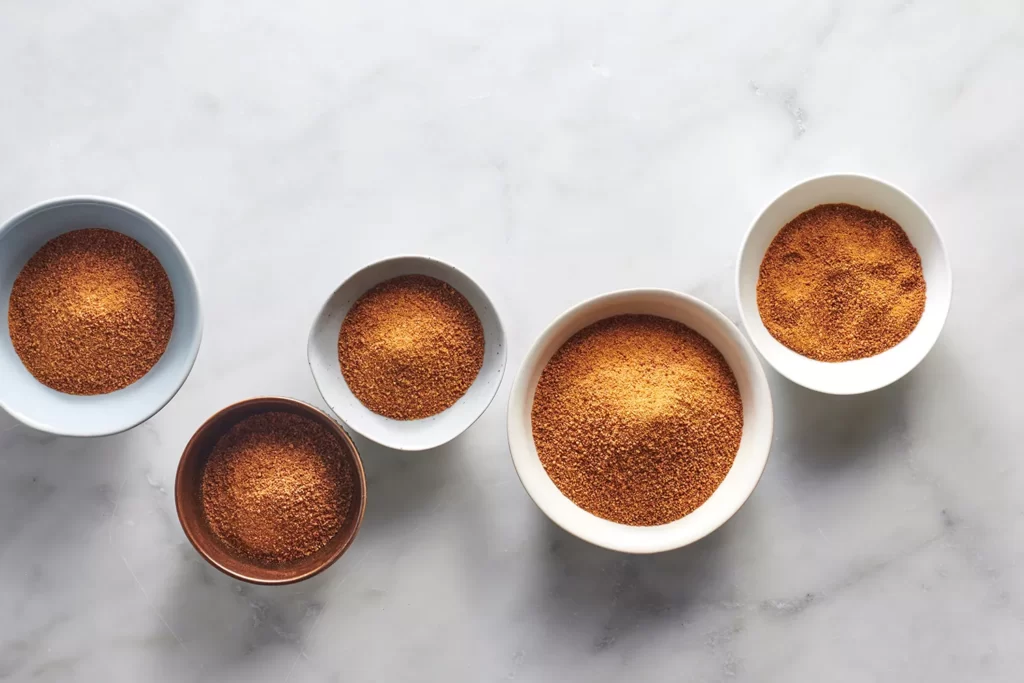
Coconut sugar is an unrefined sweetener made from the sap of coconut palm trees.
It has a caramel-like flavor and contains slightly fewer calories than regular white sugar.
Coconut sugar can be used as a one-to-one replacement for honey in recipes, such as baked goods or sauces.
The granules are larger than traditional table sugar, but they dissolve easily in liquid and have a low glycemic index.
This makes it ideal for those looking to reduce their intake of refined sugars without sacrificing sweetness.
When using coconut sugar as a substitute for honey, you may need to adjust the amount depending on your desired level of sweetness.
5 – Corn Syrup
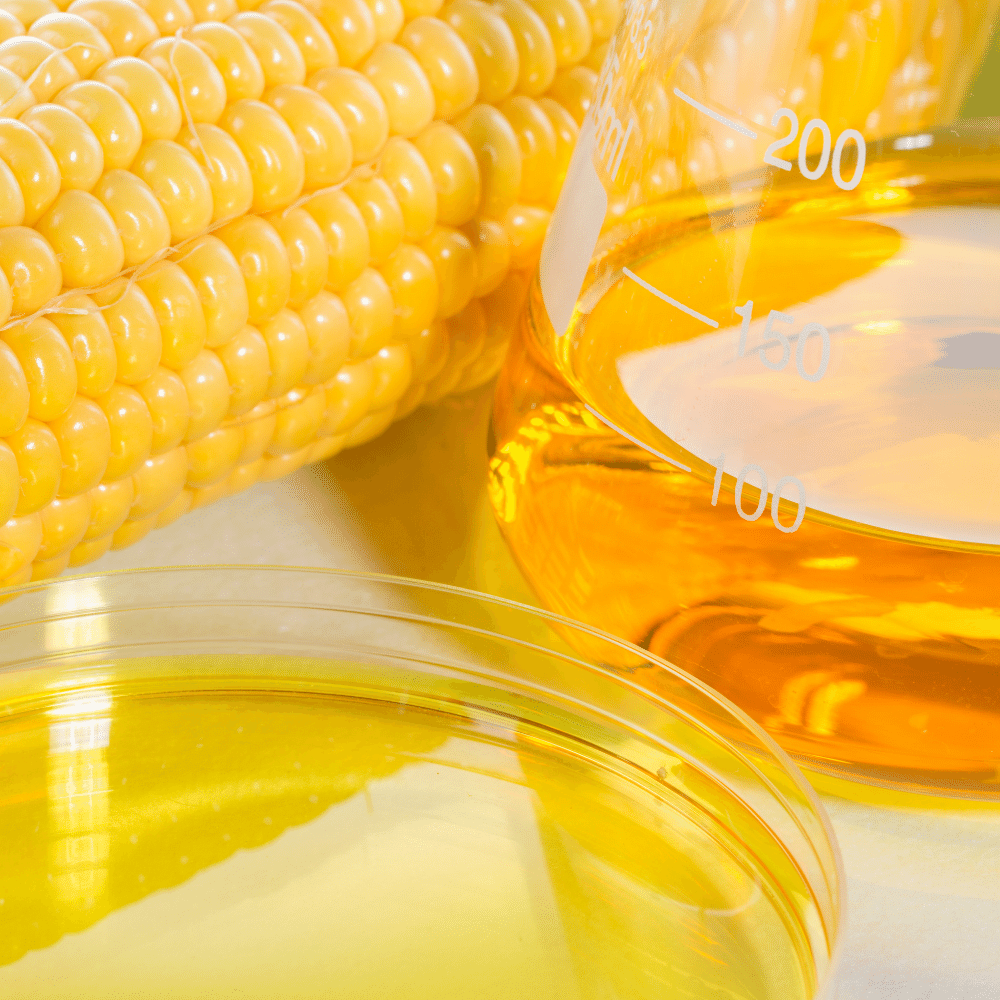
Corn syrup is a thick, sweet liquid made from cornstarch.
It has a mild flavor and is often used as an alternative to honey in baking recipes.
Corn syrup can be used in place of honey for making glazes, sauces, and other sweet treats like candy or frostings.
It’s also great for adding sweetness to coffee or tea without the added calories of sugar.
When substituting corn syrup for honey, it’s important to remember that corn syrup will not caramelize like honey does when heated.
Instead, use it in recipes where you want a smooth texture and glossy sheen without any crunchy bits of crystallized sugar.
6 – Sugar
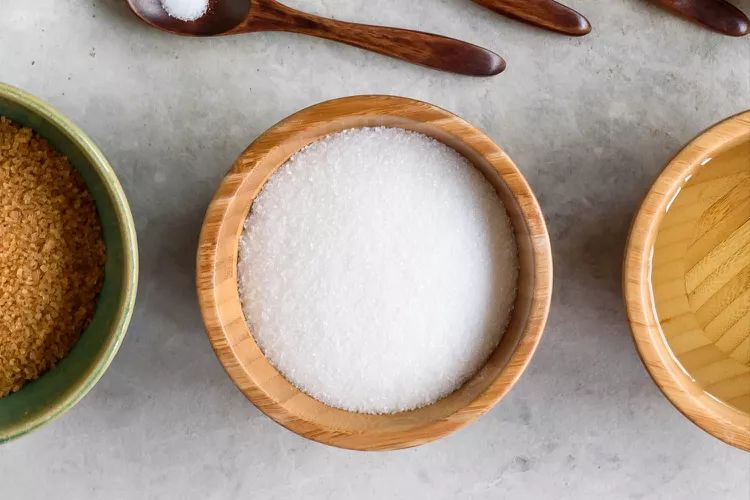
Sugar is a great substitute for honey when it comes to baking and cooking.
It has a sweet taste that can be used to add sweetness to recipes, as well as provide texture and structure.
The most common type of sugar is granulated white sugar, which is made from either cane or beet sugar.
Brown sugars are also available in light and dark varieties, each with its own unique flavor profile.
When substituting honey for sugar in a recipe, use the same amount of sugar but reduce the other liquids by about ¼ cup per cup of honey called for.
This will help maintain the desired consistency while still providing sweetness.
7 – Barley Malt Syrup
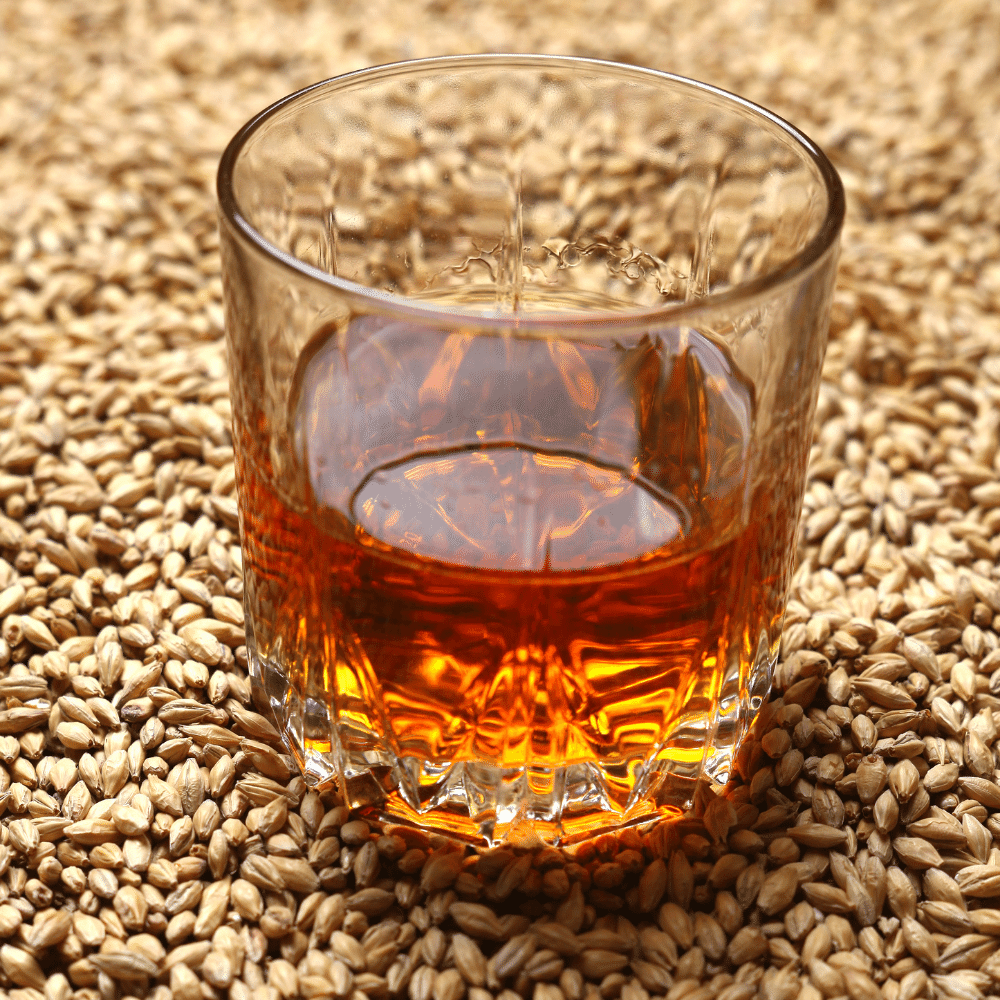
Barley malt syrup is a sweetener made from sprouted barley grains, which are then cooked down to create a thick, dark syrup.
It has a unique flavor profile that’s slightly nutty and malty with hints of caramel and molasses.
The texture is similar to honey but thicker, making it ideal for baking or glazing dishes.
This syrup can be used in place of honey as an all-natural sweetener for oatmeal, yogurt, smoothies, pancakes, waffles – even ice cream!
It also works well in marinades and sauces like teriyaki or barbecue sauce.
8 – Greek Yogurt

Greek yogurt is a creamy and thick dairy product that can be used as a substitution for honey in many recipes.
It has a slightly tart flavor, which makes it great for adding sweetness without being overly sweet.
Greek yogurt can also provide richness and body to dishes like smoothies, cakes, and muffins.
When substituting Greek yogurt for honey, you may need to adjust the amount depending on the recipe.
For example, if the recipe calls for one cup of honey, you may need to use two cups of Greek yogurt instead.
This will ensure that your dish still has enough sweetness while also providing additional texture and flavor from the yogurt.
9 – Artificial Honey
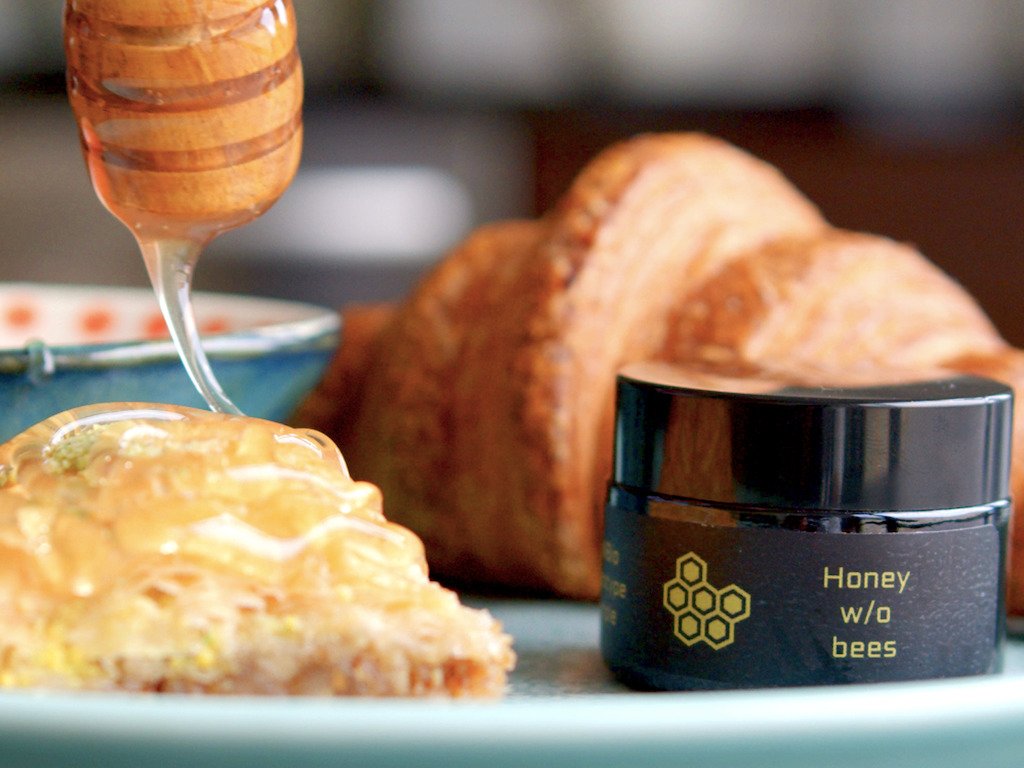
Artificial honey is a sweetener made from sugar and corn syrup, as well as other ingredients such as citric acid and artificial flavoring.
It has a similar taste to regular honey but with less of the natural sweetness.
This type of honey can be used in baking or cooking, just like traditional honey.
It works especially well for recipes that require more liquid than traditional honey can provide.
Artificial honey also makes an excellent topping for toast, pancakes, waffles, oatmeal, or yogurt.
For those looking to reduce their sugar intake without sacrificing flavor, artificial honey is a great option.
10 – Golden Syrup
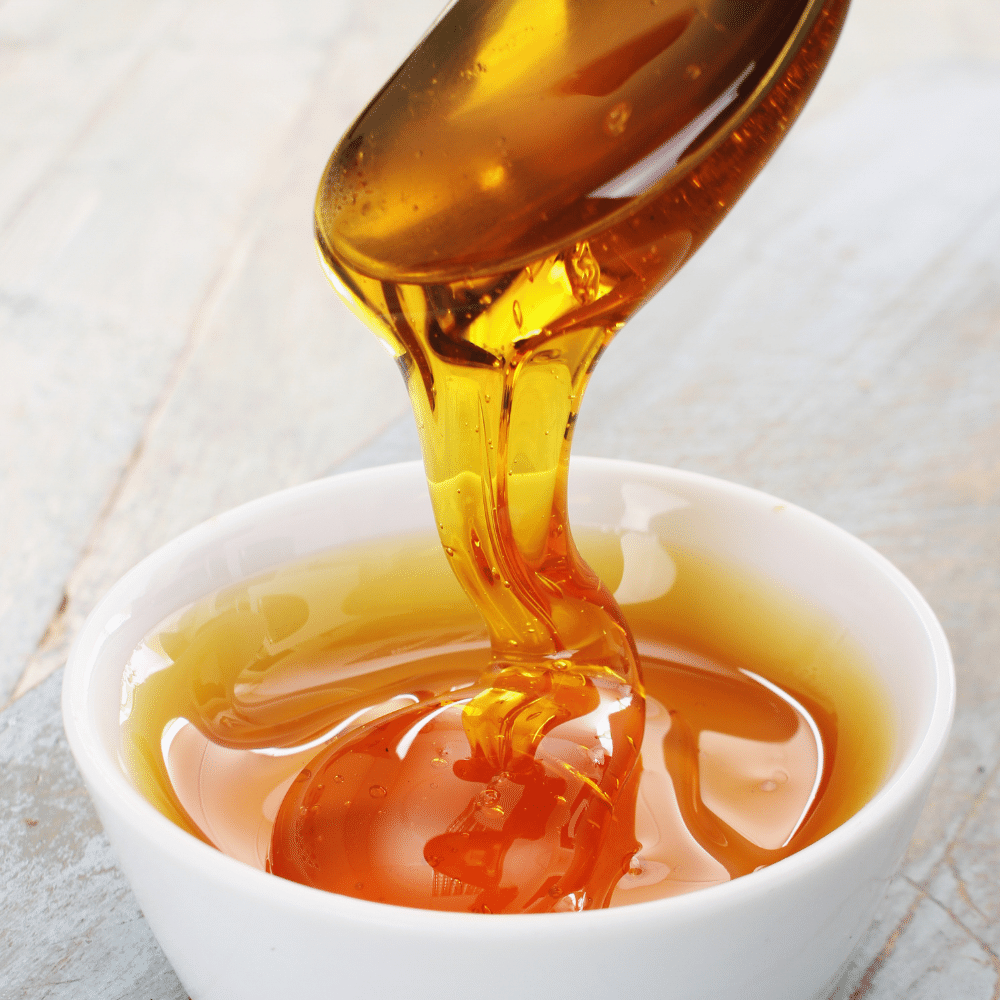
Golden syrup is a thick, golden-colored liquid sweetener made from sugar cane.
It has a unique flavor that is both sweet and slightly tangy, making it an ideal substitute for honey in baking recipes.
The syrup can be used to add moisture to cakes, cookies, and other baked goods as well as imparting a rich caramel flavor.
It also works great in sauces or glazes for meats like pork or chicken.
For those looking for a vegan alternative to honey, golden syrup can provide the same sweetness without any animal products.
This versatile ingredient is sure to bring out the best flavors in any dish!
11 – Light Molasses

Light molasses is a sweet syrup made from sugar cane or sugar beets.
It has a mild flavor and light color, making it the perfect substitute for honey in many recipes.
Light molasses can be used to sweeten baked goods like cookies, cakes, and breads.
It can also be used as an ingredient in sauces and dressings to add depth of flavor.
For those looking for a healthier alternative to honey, light molasses is a great choice because it contains fewer calories than honey and is lower on the glycemic index.
It also provides essential minerals such as iron, calcium, magnesium, potassium, copper and manganese that are not found in honey.
Light molasses is an excellent option for adding sweetness without compromising health or taste!
12 – Dark Molasses

Dark molasses is a thick, syrupy sweetener that has a robust flavor and deep color.
It’s made from the third boiling of sugar cane or sugar beet juice during the process of making refined sugar.
Dark molasses is more intensely flavored than light or mild molasses, with notes of caramel and coffee.
It can be used as an alternative to honey in baking recipes such as gingerbread, cookies, cakes, and muffins.
The dark hue also makes it ideal for adding depth to sauces and glazes for meats like pork or beef ribs.
When substituting dark molasses for honey in recipes, use half the amount called for since it’s much sweeter than honey.
13 – Coconut Nectar
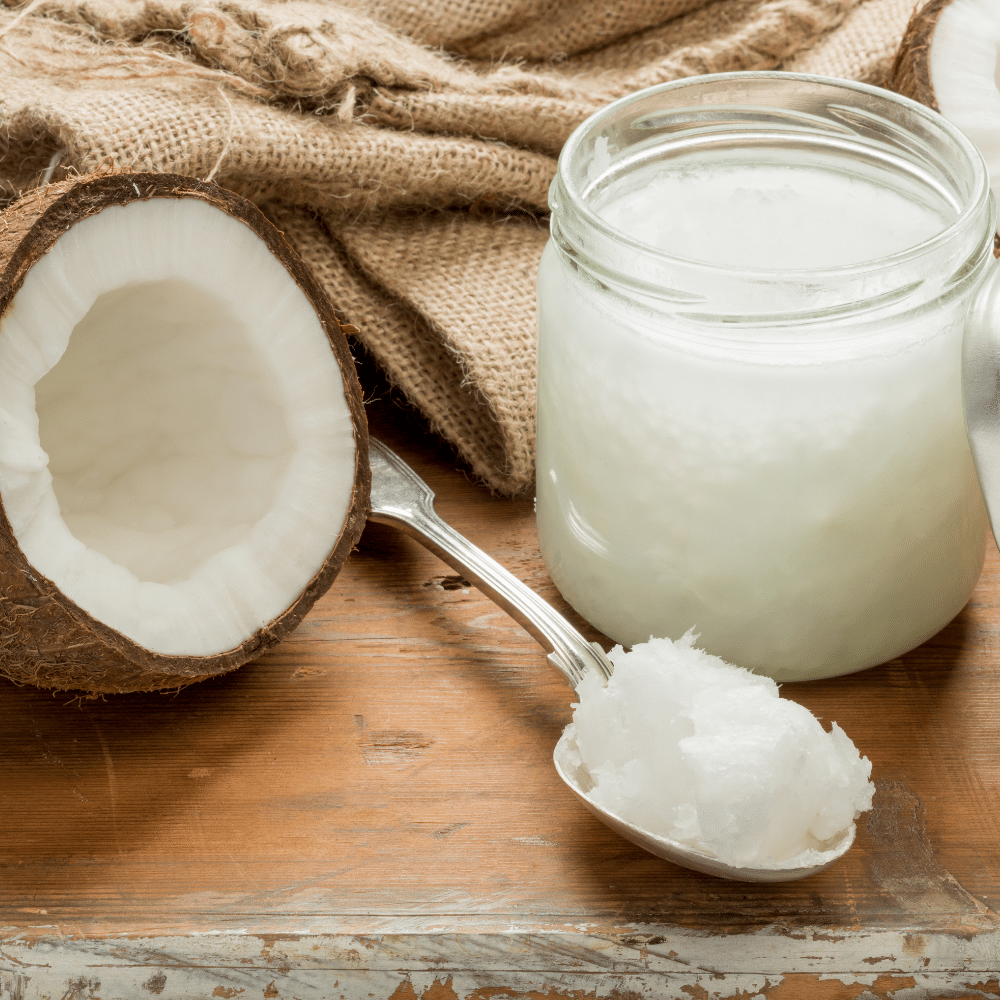
Coconut nectar is a sweet syrup made from the sap of coconut palm trees.
It has a rich, caramel-like flavor that pairs well with both savory and sweet dishes.
Unlike honey, it does not have an overpowering sweetness – instead, it has a mellow taste that can be used in place of sugar or other sweeteners.
Coconut nectar can be used to make sauces and glazes for meat and vegetables, as well as desserts like cakes and cookies.
It also works great in smoothies or stirred into hot drinks like coffee or tea.
14 – Brown Rice Syrup

Brown rice syrup is a natural sweetener made from cooked brown rice, barley malt, and enzymes.
It has a mild flavor and a thick consistency that adds depth to desserts, sauces, and baked goods.
The syrup can be used as an alternative to honey or maple syrup in recipes for pancakes, waffles, ice cream toppings, glazes for meats or vegetables, and more.
Unlike honey or maple syrup which tend to have strong flavors that may overpower other ingredients in the dish, brown rice syrup has a mellow sweetness that allows it to blend seamlessly with other flavors.
It also works well as an all-natural sweetener for beverages such as tea or coffee.
Brown rice syrup is easy to find at most health food stores.
15 – Applesauce
https://www.pinterest.com/pin/24206916741785188/Applesauce has a natural sweetness that can be used to sweeten cakes, muffins, and other baked goods.
Applesauce also adds moisture to the batter or dough, creating a light and fluffy texture.
When substituting applesauce for honey, use half of the amount called for in the recipe and add an extra teaspoon of liquid (water or milk).
This will help balance out the moisture levels since applesauce contains more water than honey does.
For added flavor, try adding spices like cinnamon or nutmeg to your applesauce before using it as a substitution.
16 – Yacon Root Syrup
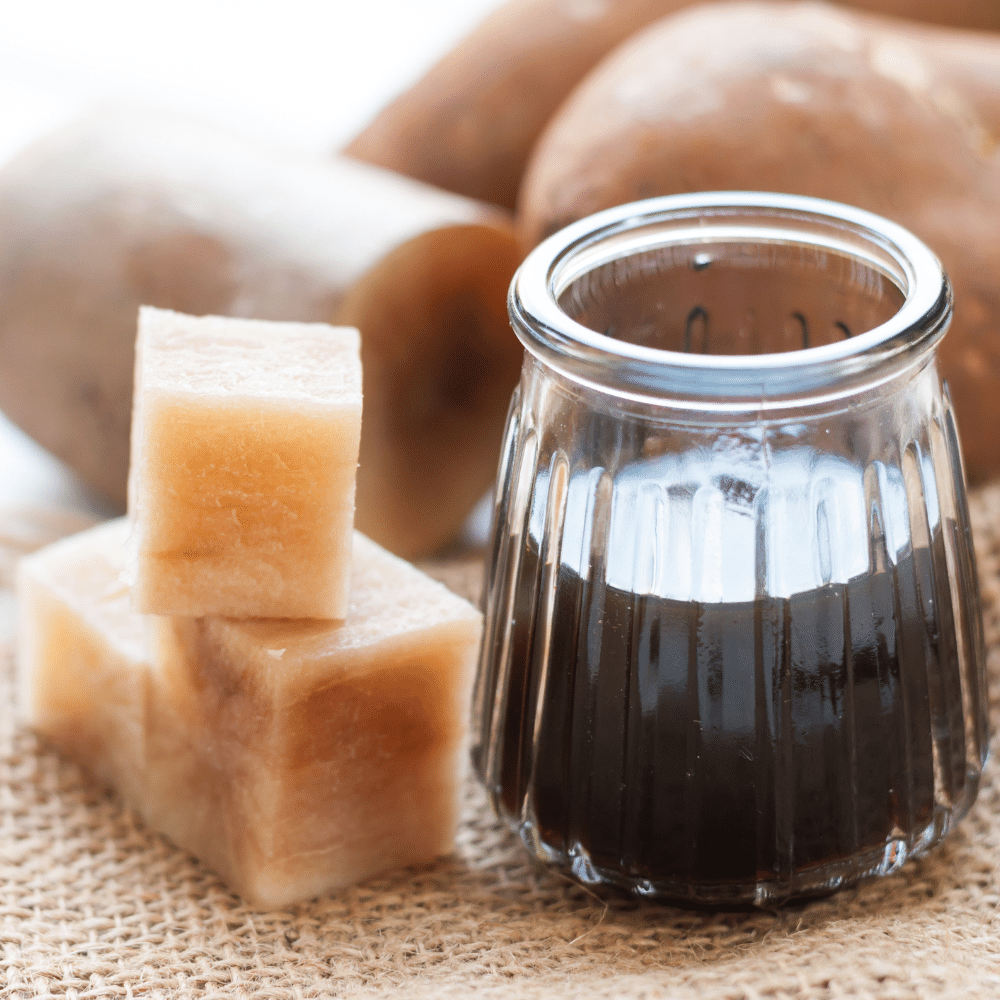
Yacon root syrup is a sweetener made from the tuberous roots of the yacon plant, native to South America.
The syrup has a deep brown color and an earthy flavor that’s similar to molasses or maple syrup.
It contains high levels of fructooligosaccharides, which are prebiotic fibers that can help support gut health.
Yacon root syrup makes an excellent substitute for honey in recipes such as dressings, marinades, and baked goods.
It has a slightly lower sweetness than honey but still provides a rich flavor and texture.
When using it as a replacement for honey, you may need to adjust the amount used depending on your recipe – start with half the amount of honey called for and taste test before adding more if needed.
17 – Mashed Bananas
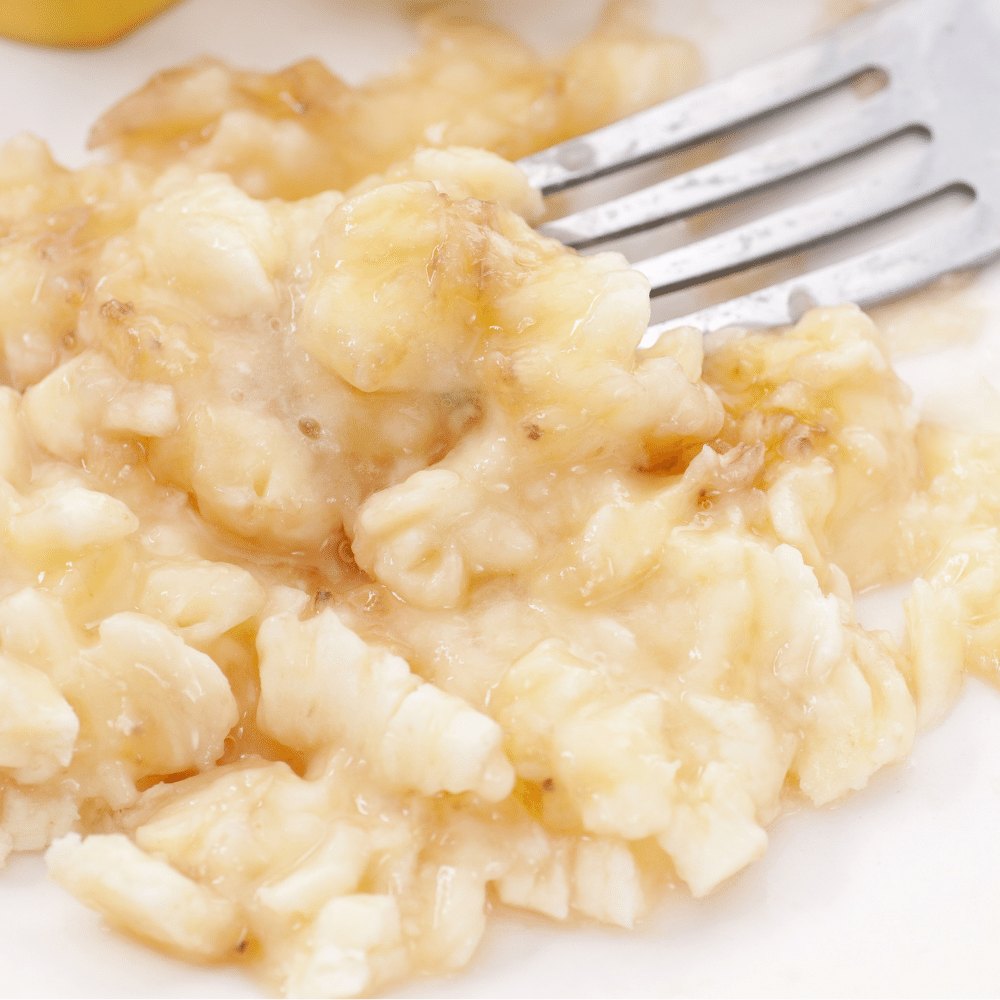
Mashed bananas are a great alternative to honey when it comes to sweetening up dishes.
Bananas are naturally sweet and full of flavor, making them an ideal substitute for honey in baking recipes.
Their creamy texture makes them especially easy to mash, which can be done with a fork or potato masher.
When used as a honey replacement, mashed banana adds richness and moisture to cakes, muffins, and other baked goods.
It also works well as a topping for ice cream or yogurt.
Mashed banana is not only delicious but also provides natural sweetness without the need for added sugar or syrup.
18 – Liquid Stevia

Liquid stevia is a plant-based sweetener made from the leaves of the stevia rebaudiana plant.
It has a naturally sweet taste that can range from mild to intense depending on the type of extract used.
Liquid stevia is sugar-free and calorie-free, making it an attractive alternative for those looking to reduce their sugar intake.
The flavor is slightly different than honey, but its sweetness can still be used as a substitute in recipes like marinades, dressings, sauces, and baked goods.
It’s also great for adding sweetness to beverages like tea or coffee without any added calories or artificial ingredients.
For those looking for an easy way to cut down on sugar while still getting some sweetness in their dishes, liquid stevia may be just what you’re looking for!
19 – Jaggery
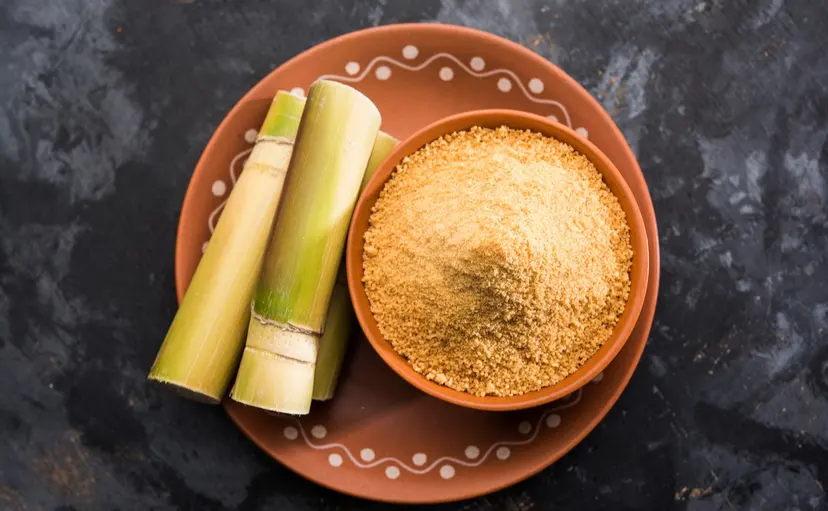
Jaggery is a traditional sweetener made from the sap of date palms, coconut trees, and other plants.
It has a deep caramel flavor that’s slightly smoky and earthy, with notes of molasses.
Unlike honey, jaggery is unprocessed and contains no added sugars or preservatives.
It also retains some of its original nutrients like iron and calcium.
Jaggery can be used as an alternative to honey in baking recipes or as a topping for pancakes or waffles.
It can also be melted into curries and sauces for extra sweetness, or sprinkled over yogurt for a unique twist on breakfast.
For those looking to switch up their usual sweeteners without compromising on flavor, jaggery is definitely worth trying out!
20 – Erythritol

Erythritol is a naturally-occurring sugar alcohol that has become increasingly popular as a substitute for other sweeteners.
It has no calories, does not raise blood sugar levels, and has a mild sweetness similar to honey.
Erythritol can be used in baking, cooking, or simply added to beverages like tea or coffee.
It dissolves easily and blends well with other ingredients, making it an ideal choice for adding sweetness without the stickiness of traditional honey.
21 – Monk Fruit

Monk fruit is an exotic sweetener derived from the juice of a small, round melon that grows in Southeast Asia.
It has a unique flavor profile, with notes of caramel and honey and a hint of citrus.
Unlike other sweeteners, monk fruit does not contain any calories or carbohydrates, making it ideal for those looking to reduce their sugar intake without sacrificing sweetness.
It can be used as a one-to-one replacement for honey in baking recipes and works well when added to smoothies, tea, or coffee.
If you’re out of honey but still want to add sweetness to your dishes without the extra calories or carbs, try monk fruit!
22 – Date Paste
https://www.pinterest.com/pin/528680443770735509/Date paste is a delicious, all-natural sweetener made from dates.
It has a thick, syrupy texture and a mild caramel flavor that can be used to replace honey in many recipes.
Date paste is easy to make at home with just two ingredients: dates and water.
All you need to do is soak the dates in warm water until they are soft and then blend them into a smooth paste.
You can also add spices like cinnamon or nutmeg for an extra layer of flavor.
Date paste is ideal for baking as it adds sweetness without overpowering other flavors in the dish.
It’s also great for making sauces, dressings, and marinades, or simply drizzling over oatmeal or yogurt.
23 – Dandelion Syrup
https://www.pinterest.com/pin/224617100150143873/Dandelion syrup is a unique and flavorful alternative to honey.
It’s made by boiling down dandelion petals with sugar, lemon juice, and spices like cinnamon or nutmeg.
The result is a thick syrup that has an earthy flavor reminiscent of maple syrup but with floral notes.
Dandelion syrup can be used in all the same ways as honey – drizzled over pancakes or waffles, stirred into tea or coffee, mixed into dressings or marinades, and more.
It also makes for a great topping on ice cream or yogurt!
For those looking for something different than the usual sweetener options, give dandelion syrup a try!
24 – Sorghum Syrup
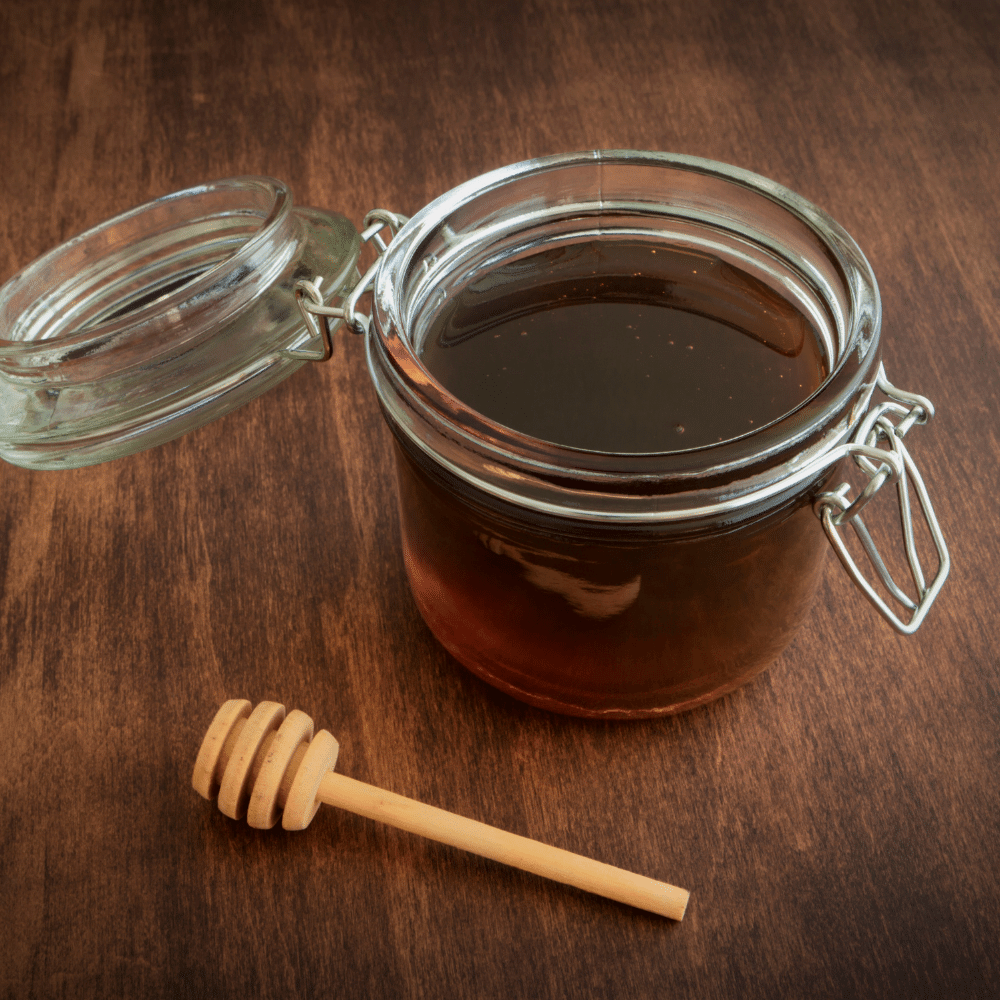
Sorghum syrup is a sweetener made from the juice of sorghum, a type of grass native to Africa.
The syrup has been used in the United States since the 1800s and is most popular in Southern states.
It has a deep, molasses-like flavor with notes of caramel and butterscotch.
It’s also slightly thinner than honey, making it easier to pour over pancakes or waffles.
Sorghum syrup can be used in recipes that call for sweetness.
Its unique flavor pairs especially well with oatmeal cookies or banana bread.
For an extra special treat, try drizzling it over ice cream or using it as a glaze on roasted vegetables like carrots and squash.
25 – Allulose
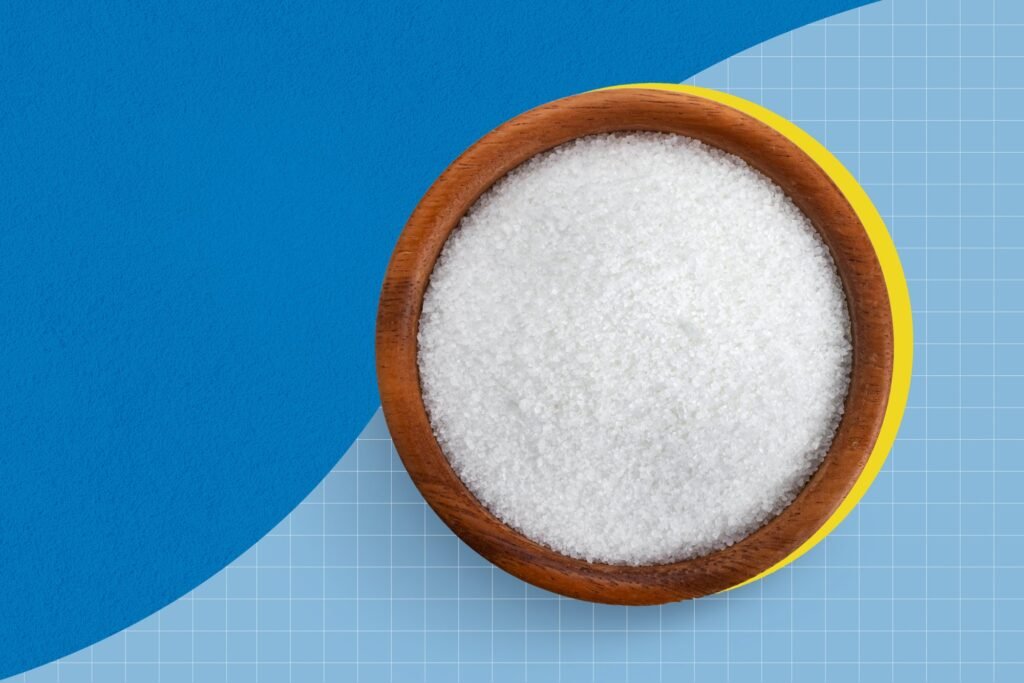
Allulose is a sugar substitute that has been gaining popularity as an alternative to honey.
It has the same sweetness as regular sugar but with only a fraction of the calories and carbohydrates.
Allulose is made from natural sources, such as wheat and corn, and can be used in baking, cooking, or even just sprinkled on top of food for added sweetness.
Unlike honey, which can crystallize over time when stored at room temperature, allulose remains stable for long periods of time and does not require refrigeration.
It also adds moisture to baked goods without making them overly sweet like honey can do.
Conclusion
In conclusion, there are plenty of options when it comes to substituting honey in recipes.
From maple syrup to agave nectar and molasses to coconut sugar, there are plenty of options out there to choose from.
Ultimately, it will come down to personal preference and what you have access to.
Whichever substitute you choose, make sure to adjust the amount of sugar and liquid in the recipe to make up for the difference in sweetness and viscosity.

The 25 Best Substitutes For Honey
Ingredients
- Maple Syrup
- Agave Nectar
- Molasses
- Coconut Sugar
- Corn Syrup
- Sugar
- Barley Malt Syrup
- Greek Yogurt
- Artificial Honey
- Golden Syrup
- Light Molasses
- Dark Molasses
- Coconut Nectar
- Brown Rice Syrup
- Applesauce
- Yacon Root Syrup
- Mashed Bananas
- Liquid Stevia
- Jaggery
- Erythritol
- Monk Fruit
- Date Paste
- Dandelion Syrup
- Sorghum Syrup
- Allulose
Instructions
- Pick your favorite substitute from the list above.
- Follow cooking directions for your selected substitute with the proper ratio of ingredients.
Hi, I'm Benjamin. I love cooking, long walks, and my girlfriend! Here you’ll find simple and delicious recipes that you can make in 30 minutes or less.

